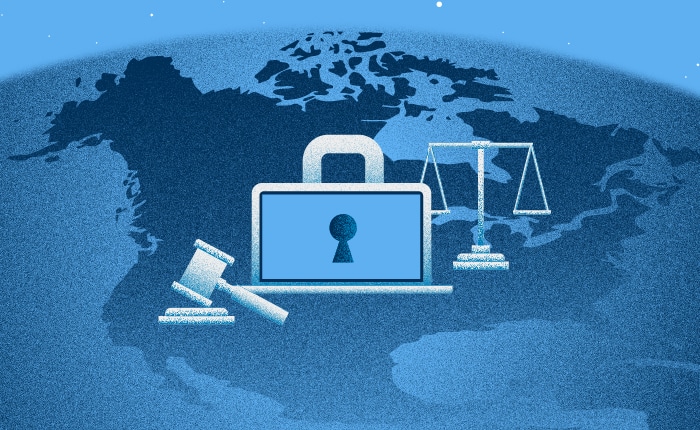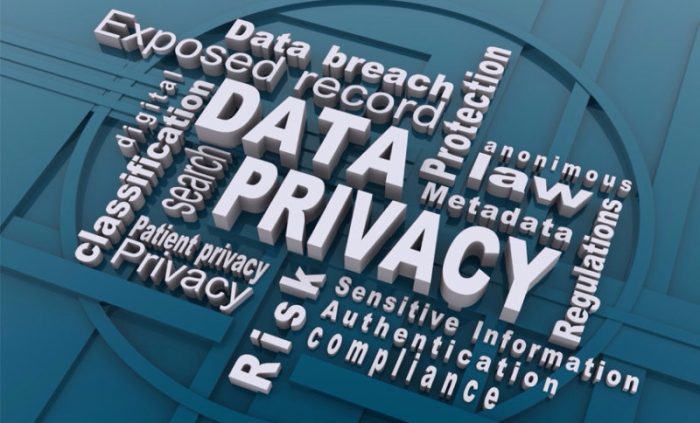Understanding Data Privacy Laws dives into the world of data protection regulations, shedding light on the crucial aspects that govern digital privacy in today’s age. From GDPR to CCPA, explore the landscape of data privacy laws and their impact on businesses and individuals.
Overview of Data Privacy Laws
In today’s digital age, where personal information is constantly being shared and stored online, data privacy laws play a crucial role in protecting individuals’ sensitive data from misuse and exploitation.
Importance of Data Privacy Laws
Data privacy laws are essential for safeguarding individuals’ personal information, such as their names, addresses, financial details, and online activities, from unauthorized access or disclosure. These laws help establish boundaries for how organizations collect, use, and share data, ensuring that individuals have control over their own information.
- Data privacy laws promote trust between consumers and businesses by reassuring individuals that their data is being handled responsibly.
- These laws also help prevent identity theft, fraud, and other cybercrimes that can result from data breaches or unauthorized access to personal information.
- By holding organizations accountable for protecting data privacy, these laws encourage transparency and accountability in data processing practices.
Key Objectives of Data Privacy Laws
Data privacy laws aim to achieve several key objectives to ensure the protection of individuals’ privacy rights and data security.
- Provide individuals with greater control over their personal information and how it is collected, used, and shared.
- Establish clear guidelines and standards for organizations to follow when handling sensitive data.
- Enforce penalties and consequences for non-compliance with data privacy regulations to deter misuse of personal information.
Countries with Stringent Data Privacy Regulations
Some countries have implemented stringent data privacy regulations to enhance data protection and privacy rights for their citizens.
For example, the European Union’s General Data Protection Regulation (GDPR) sets strict rules for how organizations handle personal data of EU residents, with hefty fines for violations.
- California, USA, has the California Consumer Privacy Act (CCPA), which gives residents certain rights over their personal information and requires businesses to disclose data collection practices.
- Singapore’s Personal Data Protection Act (PDPA) regulates the collection, use, and disclosure of personal data by organizations to safeguard individuals’ privacy.
General Data Protection Regulation (GDPR)

The General Data Protection Regulation (GDPR) is a comprehensive data privacy law that was implemented in the European Union in 2018 to protect the personal data of individuals.
Core Principles of GDPR
- Transparency: Organizations must inform individuals about how their data is being used and processed.
- Consent: Individuals must provide clear and explicit consent for their data to be collected and used.
- Data Minimization: Only the necessary data should be collected and processed for specific purposes.
- Accuracy: Organizations are required to ensure that the data they hold is accurate and up to date.
- Security: Measures must be in place to protect personal data from unauthorized access or breaches.
Rights Granted to Individuals under GDPR
- Right to Access: Individuals have the right to request access to their personal data held by organizations.
- Right to Rectification: Individuals can request corrections to inaccurate or incomplete data.
- Right to Erasure: Also known as the “right to be forgotten,” individuals can request the deletion of their personal data.
- Right to Data Portability: Individuals can request their data to be transferred to another organization in a commonly used format.
- Right to Object: Individuals can object to the processing of their personal data for certain purposes.
Comparison with Other Data Privacy Laws
GDPR is considered one of the most stringent data privacy laws globally, setting a high standard for the protection of personal data. Compared to other laws like the California Consumer Privacy Act (CCPA) in the United States or the Personal Information Protection Law (PIPL) in China, GDPR provides more comprehensive rights and protections for individuals.
California Consumer Privacy Act (CCPA)

The California Consumer Privacy Act (CCPA) is a state statute that enhances privacy rights and consumer protection for residents of California. It came into effect on January 1, 2020, and has a significant impact on how businesses handle personal information.
Main Provisions of CCPA
- Right to know: Consumers have the right to request information about the personal data collected, used, and shared by businesses.
- Right to delete: Consumers can request the deletion of their personal information held by businesses.
- Right to opt-out: Consumers can opt-out of the sale of their personal information.
- Non-discrimination: Businesses cannot discriminate against consumers who exercise their privacy rights.
Examples of CCPA Impact on Businesses
- A business operating in California must provide notice to consumers about the types of personal information collected and the purposes of use.
- Companies need to implement processes to respond to consumer requests for information or deletion of personal data.
- Businesses must update their privacy policies to comply with CCPA requirements and provide opt-out mechanisms for data selling.
Similarities and Differences between CCPA and GDPR, Understanding Data Privacy Laws
- Similarities:
- Both CCPA and GDPR aim to protect consumer privacy and regulate the collection and use of personal data.
- Both laws grant consumers rights to access, delete, and opt-out of the sale of their personal information.
- Differences:
- GDPR applies to businesses operating in the European Union, while CCPA applies to businesses operating in California.
- GDPR has stricter requirements for obtaining consumer consent for data processing compared to CCPA.
- CCPA focuses more on the right to opt-out of data selling, while GDPR emphasizes data security and breach notification.
Data Protection Officer (DPO)
When it comes to safeguarding data privacy within an organization, the role of a Data Protection Officer (DPO) is crucial. The DPO is responsible for overseeing data protection strategy and ensuring compliance with relevant data privacy laws and regulations.
Responsibilities of a DPO
- Developing and implementing data protection policies and procedures.
- Providing advice and guidance on data protection impact assessments.
- Monitoring compliance with data privacy laws and regulations.
- Acting as a point of contact for data subjects and supervisory authorities.
- Conducting training sessions for staff on data protection best practices.
Qualifications Required to Become a DPO
In order to become a Data Protection Officer, individuals typically need to have a strong background in data protection and privacy laws. Some common qualifications include:
- A deep understanding of data privacy regulations such as GDPR and CCPA.
- Experience in developing and implementing data protection policies.
- Strong communication and interpersonal skills.
- Certifications such as Certified Information Privacy Professional (CIPP) can also be beneficial.
Data Breach Notification: Understanding Data Privacy Laws
Data breach notification is a crucial aspect of data privacy laws, requiring companies to take specific steps in the event of a breach to protect the affected individuals’ information.
Steps Companies Should Take
- Immediately assess the extent of the breach and identify the affected data.
- Notify the appropriate authorities and regulatory bodies about the breach.
- Inform the individuals whose data has been compromised about the breach.
- Take necessary measures to contain the breach and prevent further unauthorized access.
- Implement security improvements to prevent future breaches.
Consequences of Non-Compliance
- Hefty fines and penalties imposed by regulatory bodies.
- Damaged reputation and loss of customer trust.
- Potential suspension of operations or business closure.
Examples of Major Data Breaches
- The Equifax data breach in 2017 exposed the personal information of 147 million people, leading to multiple lawsuits and a significant financial settlement.